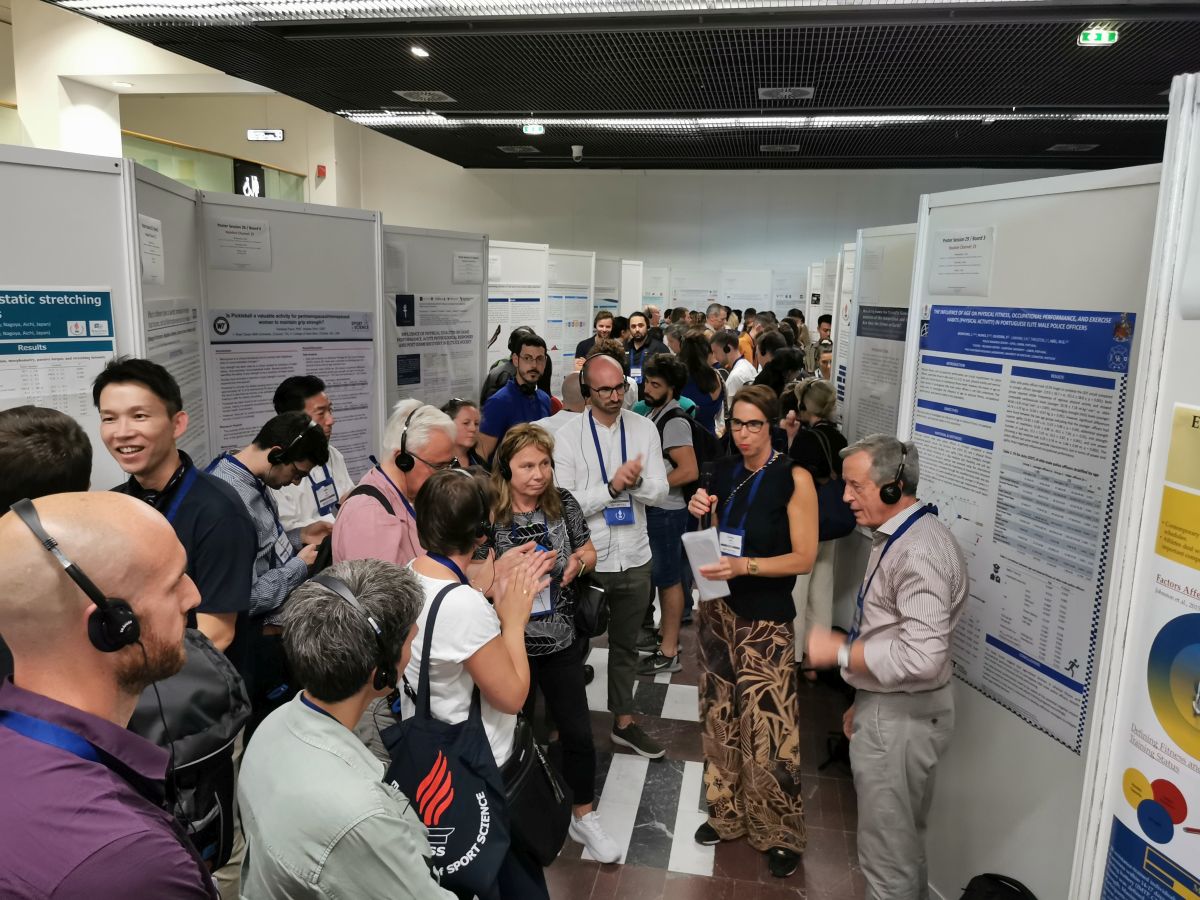
Our five General Fields and their respective subtopics are described below.
Biomechanics & Motor Control (BM)
Studies of human movement from a mechanical viewpoint (i.e., kinematics, kinetics), and research studying the neuromuscular aspects (i.e., EMG, coordination, motor control) influencing performance. Both fundamental (mechanistic) and observational reports are welcomed. Attention is drawn as well to the loading characteristics of different sports and exercises on the musculoskeletal system. Investigations that use in-vitro or in-vivo approaches in human, animal and cell models are equally acceptable as long as direct links to exercise and sport are apparent.
The Biomechanics & Motor Control field represents the following topics:
- Biomechanics
- Motor Learning & Motor Control
- Neuromuscular Physiology
Physiology & Nutrition (PN)
Life science disciplines in a basic empirical biological science setting. Experimental models that explore and describe the acute and/or training adaptations to exercise and activity are welcomed, as are studies that address the fundamental mechanisms responsible for the beneficial and harmful effects of exercise and sport. Investigations that use in-vitro or in-vivo approaches in human, animal and cell models are equally acceptable as long as direct links to exercise and sport are apparent. Please note that neurophysiological work should be submitted in the Biomechanics & Motor Control (BM) discipline.
The Physiology & Nutrition field represents the following topics:
- Molecular Biology & Biochemistry
- Nutrition
- Physiology
Psychology, Social Sciences & Humanities (SH)
Focus on forms, meanings, determinants and consequences of sport and physical activity in society, whether in the past, present and/or future. Sport and physical activity can be understood as a wide variety of activities taking place in a variety of environments and ranging from, for example, physical culture, exercise, physical education, sports for all, performance/competitive sport, adventure sports, outdoor activities, active transport and physical recreation. Sport and physical activity are investigated in relation to methodological and theoretical approaches within psychology, pedagogy, sociology, history, philosophy and management. Research within this theme may also address questions on ways socioeconomic structures and social categories such as gender, ethnicity, sexuality, generation and social class influence and are influenced by sport/physical activity engagement. Analyses and interpretation of qualitative as well as quantitative data are welcome.
The Psychology, Social Sciences & Humanities field represents the following topics:
- Coaching
- History
- Philosophy & Ethics
- Physical Activity Promotion
- Physical Education & Pedagogy
- Psychology
- Sociology
- Sport Management & Law
Sports & Exercise Medicine & Health (MH)
Sports & Exercise Medicine & Health can be studied from a translational perspective, including preclinical models, clinical studies and epidemiology. Exercise as medicine includes the role of exercise as a means to improve health and decrease the risk of disease (healthy people, young or old) or the role of exercise as treatment/rehabilitation of diseases (e.g., cancer, diabetes, cardiopulmonary diseases, immune diseases, orthopaedic diseases). Other populations may include disabled or injured people or athletes with health problems (e.g., asthma in swimmers).
The Sports & Exercise Medicine & Health field represents the following topics:
- Disabilities
- Health & Fitness
- Physiotherapy
- Sports Medicine & Orthopaedics
Applied Sports Sciences (AP)
Studies from all disciplines, where the focus is on the application of methods and/or technologies, or theoretical constructs into applied practice to impact change in society or performance. This could also include the use of artificial intelligence and analysis of ‘big data’ to better understand real-world problems.
The Applied Sports Sciences field represents the following topics:
- Coaching
- Sport Technology
- Statistics & Analyses
- Training & Testing
